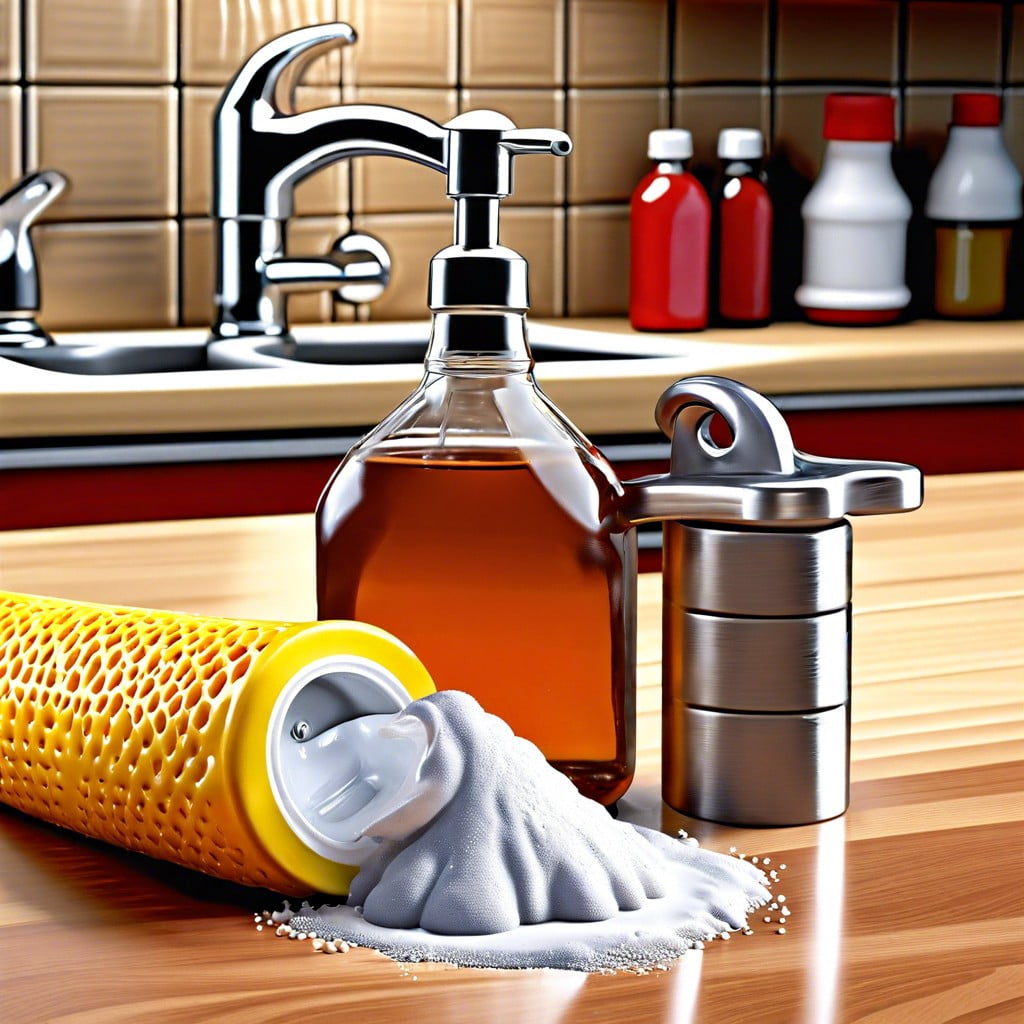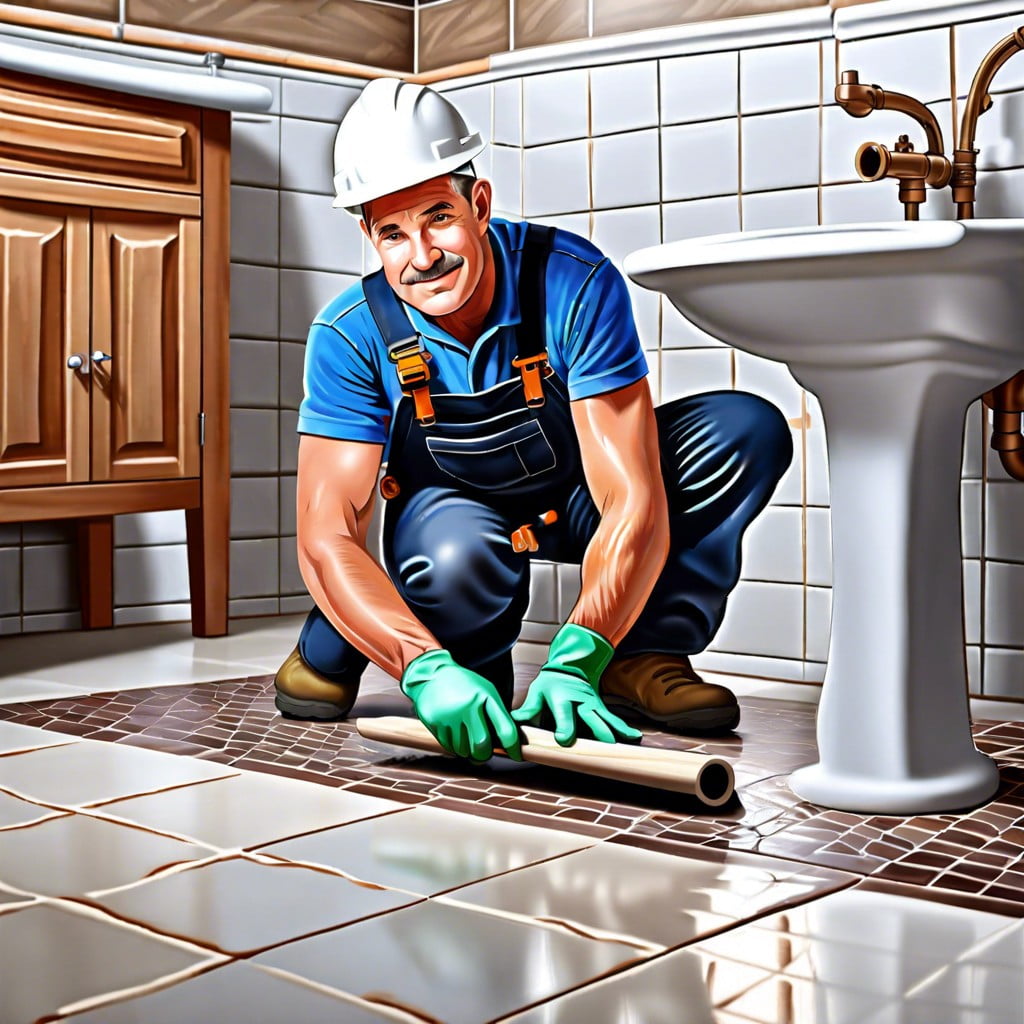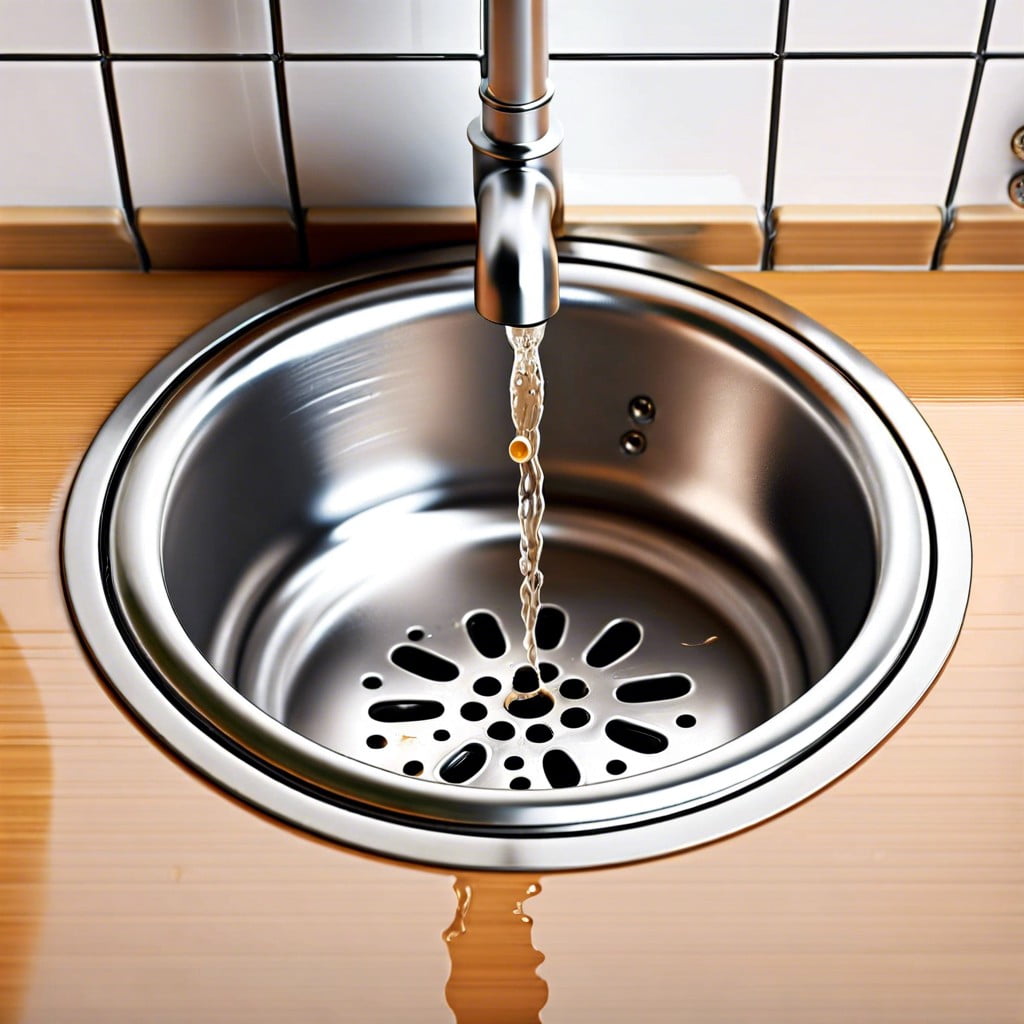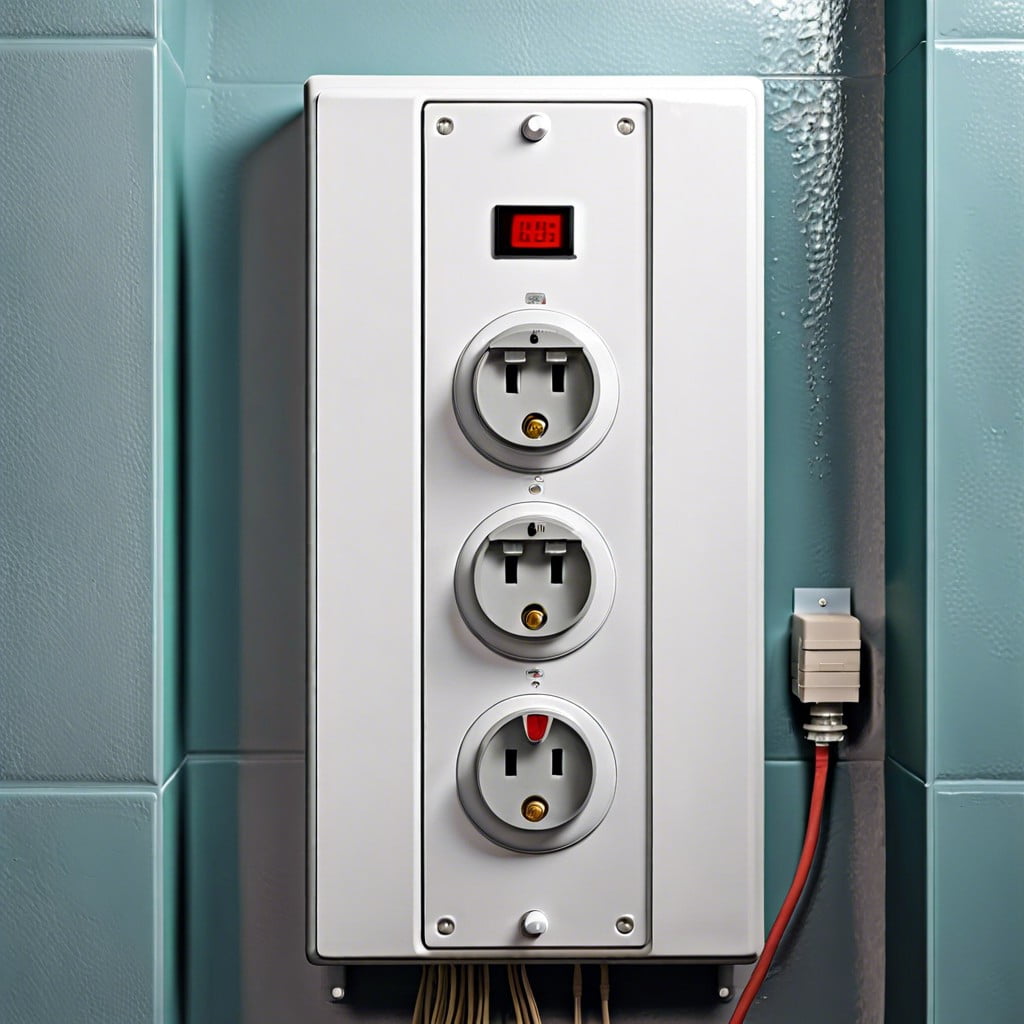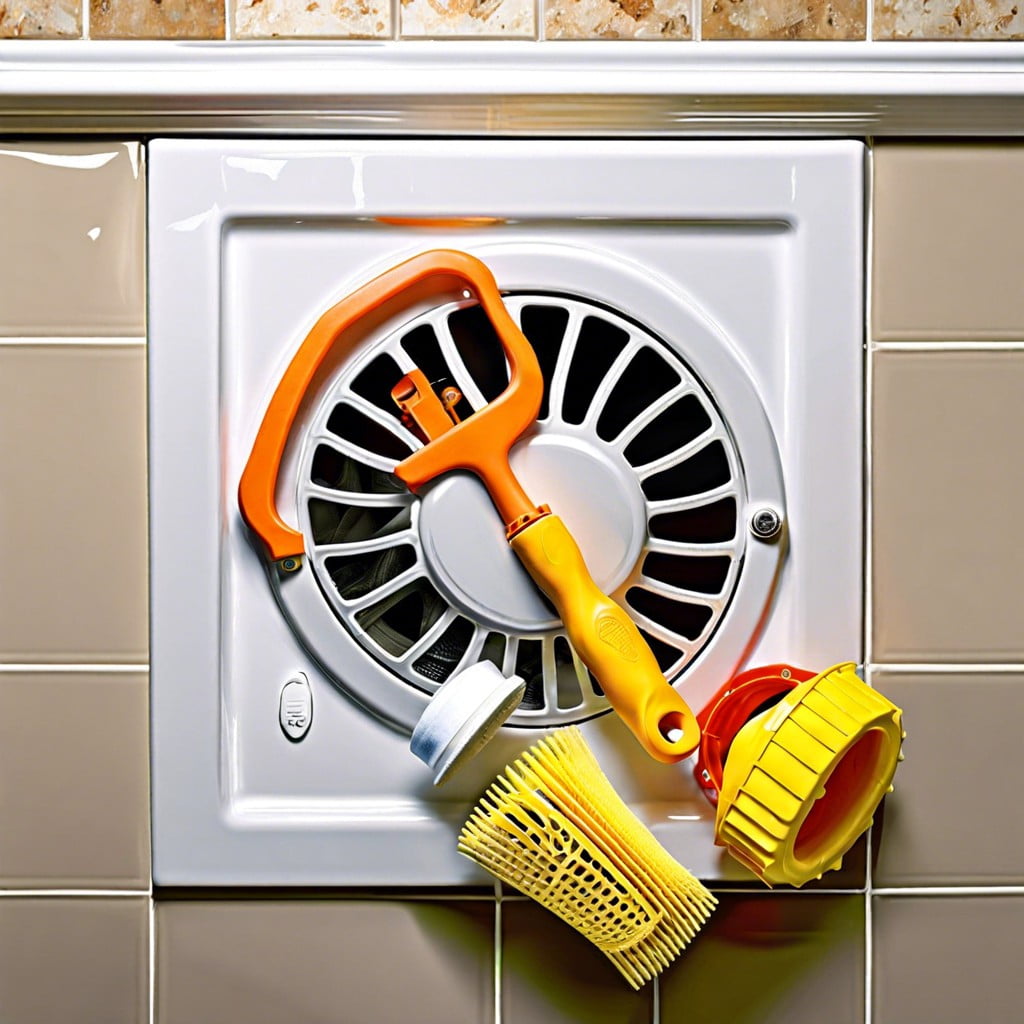Last updated on
Learn how to eliminate odors from your bathroom sink drain effectively with straightforward solutions.
Key takeaways:
- Boiling water melts away fats and soaps causing odors.
- Baking soda and vinegar fizz up to break down gunk in pipes.
- Clean the drain trap regularly to prevent odors.
- Lemon peels add a fresh citrus scent to combat bad smells.
- Check and maintain the U-bend to eliminate odors effectively.
Reasons for a Sink Drain Smell
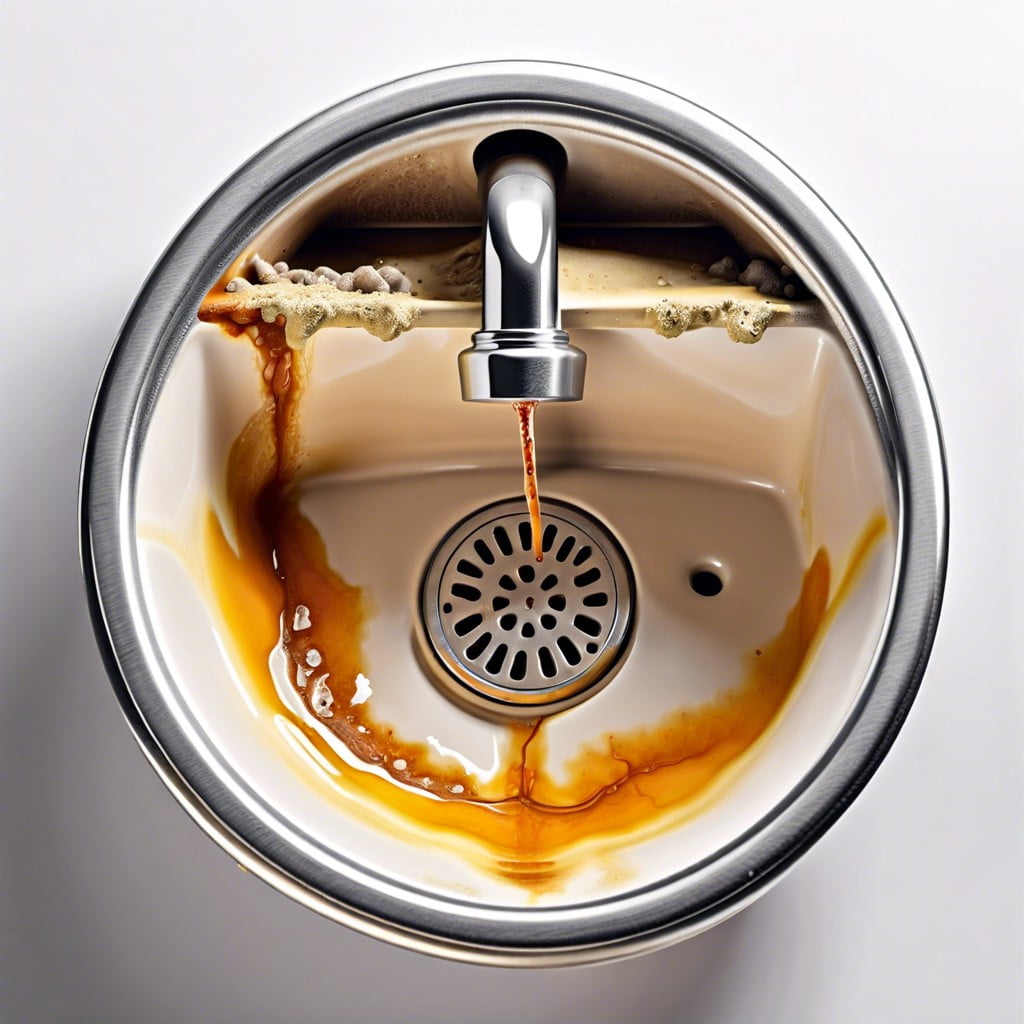
Bacteria and mold growth often contribute to foul odors, thriving in the moist environment of your bathroom sink. Another common culprit could be trapped food particles or hair clogging the drain, which decomposes over time and releases a stench. Sometimes, the smell might originate from deeper within the sewage system, especially if the drain traps have dried out or are malfunctioning, allowing sewer gases to back up into your home. Lastly, infrequently used sinks can also lead to smells, as the lack of water flow prevents the natural flushing away of potential odor-causing debris.
Ways to Get Rid of a Smelly Drain
Pouring boiling water down the drain can sometimes be like a magic elixir; it’s simple but effective. This method works by melting down fats and soaps that have built up in the pipe, which are often responsible for the unpleasant smell.
Baking soda and vinegar are not just for science fair volcanoes! Combining these two creates a fizzing action that can help break up gunk clinging to the walls of your pipes. Pour half a cup of baking soda followed by half a cup of vinegar into the drain. Wait an hour, then flush with hot water to clear out all the residue.
For an ongoing solution, ensure regular cleaning of the drain trap. This U-shaped pipe under the sink can accumulate debris, leading to odors. Unscrew it carefully, clean it out thoroughly, and replace it securely.
Lastly, lemon peels can add a breath of fresh air. Grind some down your disposal if you have one; they not only clear out buildup but leave a citrusy freshness that temporarily counteracts bad smells.
Check the U-bend
Often, the nefarious odors originate from this curvy part of your pipe. Its primary job is to trap a small amount of water each time the sink drains, essentially creating a barrier that prevents sewer gases from wafting back into your home. If this trap dries out, perhaps from infrequent use, or gets clogged with debris, those unpleasant smells can make their presence felt. To tackle this issue:
- Start by placing a bucket beneath the U-bend to catch any spillage.
- Unscrew the fittings on both sides of the U-bend manually, or use a wrench if they’re tight.
- Remove the bend and inspect it for clogs or debris. Clean it thoroughly with a brush and soapy water.
- Before reattaching the U-bend, ensure the washers are in good condition to prevent leaks.
- Screw the bend back into place and run water through it to test for leaks and flush through any residual cleaning agent.
By maintaining the U-bend, you often can neutralize odors effectively and keep everything flowing smoothly.
Using Boiling Water
Boiling water is a simple yet effective method for clearing out those pesky odors. Pouring a kettle of hot water down the drain can help dissolve built-up grease and soap that are often the culprits behind the stench. This method is especially helpful if the smell emerges from seldom-used sinks, as the standing water in traps can become stale. Regular hot water flushes keep everything flowing smoothly and smell-free. However, use caution with very hot water if you have PVC pipes, as extreme temperatures might loosen the joints.
Keep Your Bathroom Smelling Fresh
A fresh bathroom isn’t just about appearances; it’s about crafting an inviting atmosphere. Start with good ventilation. Keeping windows open or ensuring that your exhaust fan is working effectively can do wonders in warding off damp, musty smells. Next, consider a dehumidifier to tackle excess moisture that often contributes to odors.
Incorporating air fresheners or essential oil diffusers introduces pleasant scents and masks any lingering odors. Opt for scents like lavender or citrus that are known to neutralize bad smells rather than just covering them. For a natural approach, place a bowl of baking soda or activated charcoal in a corner of your bathroom; these substances are great at absorbing unpleasant odors. Regular maintenance combined with these steps will transform your bathroom into a consistently fresh space.
Recap
